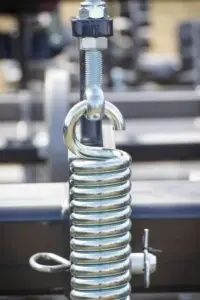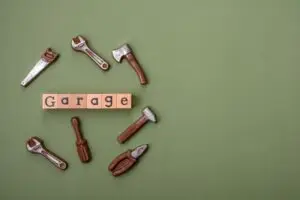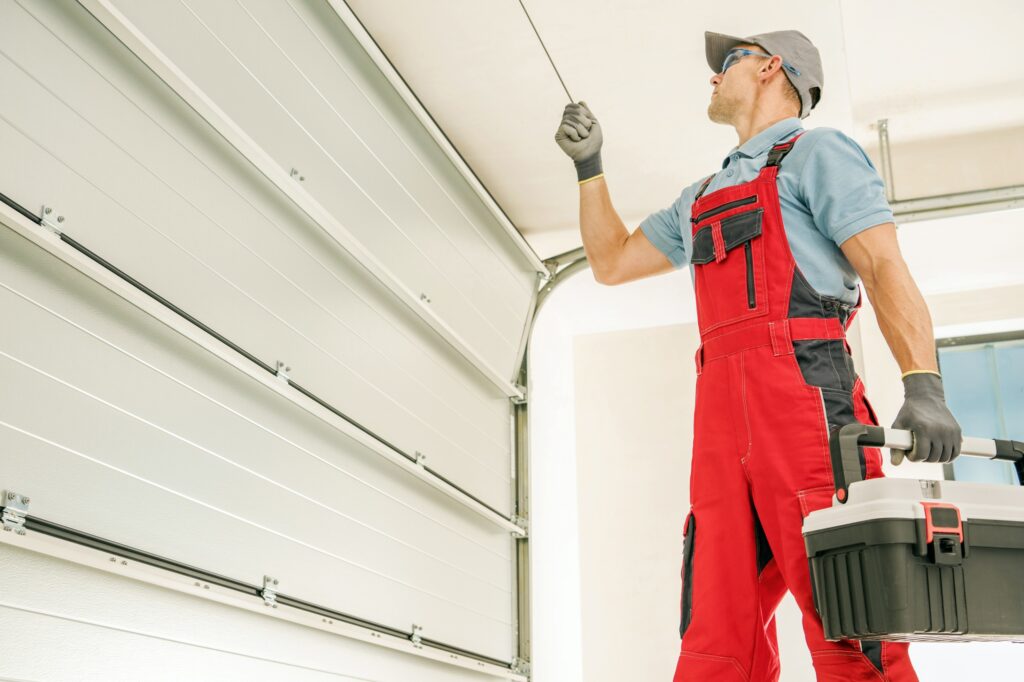Houston weather doesn’t mess around. One minute, it’s sunny; the next, you’ve got lightning, flooding, and high winds hammering your home—and your garage door isn’t immune to the chaos. If you’ve ever had a garage door suddenly stop working during a storm, you already know how frustrating (and dangerous) it can be.
That’s where emergency garage door repair steps in.
Whether your garage won’t close, your opener fried in a power surge, or the door literally blew off track, this guide will walk you through what to watch for, how to prevent the worst, and when to call in a pro. At Houston Garage Door Repair, we specialize in fast, responsive, and safe solutions when the weather won’t wait.
Why Storm Season and Garage Doors Don’t Mix
Let’s be honest—garage doors are big, heavy, and a bit dramatic when something goes wrong. And Houston’s storm season gives them plenty of reasons to throw a tantrum.
Here’s why:
- High winds can warp panels or yank the door off its track
- Flooding can soak electrical components or sensors
- Power outages leave you stuck—inside or outside
- Lightning strikes can fry your opener or control board
- Sudden pressure shifts can cause sudden door failure
In short, your garage door is one of the most vulnerable moving parts of your home during extreme weather. That’s why understanding how to handle an emergency is just smart homeowner prep.
The Most Common Garage Door Emergencies During Storms
Storms can hit your system in a variety of ways. Let’s break down the most common issues that lead to a frantic call for emergency garage door repair.
1. The Garage Won’t Close All the Way
This is a biggie. When a storm is approaching, the last thing you want is your garage door getting stuck halfway down. It exposes your garage—and everything in it—to rain, wind, and debris.
Possible culprits:
- Bent track from wind pressure
- Misaligned safety sensors (hello, water-logged sensors)
- Power surges messing with the control board
- Damaged rollers or springs
2. Power Outage Garage Issues
When the power goes out, your automatic garage door opener is temporarily useless unless you have a backup battery or manual override setup.
Pro Tip: Learn how to use your manual release cord before the lights go out—not during a torrential downpour.
3. Storm Damage to Panels and Tracks
High winds and flying debris can cause wind damage to garage doors, denting panels, pulling doors off track, or even knocking your system off its rollers completely. A bent panel may prevent the door from moving at all, and an off-track garage is a safety hazard.
4. Electrical Surge Damage
Lightning or electrical spikes during storms can toast your opener’s circuit board, remote sensors, or wall switch. If your system is unresponsive after a storm, the internal components could be fried.
Urgent Garage Door Repair: What to Do Immediately
When the door won’t shut and the rain is pouring, it’s easy to panic. But staying calm and taking the right first steps can prevent further damage—and even keep your family safe.
Step 1: Disconnect the Opener
If you can safely reach the emergency release cord (usually a red handle), pull it to disengage the door from the opener and operate it manually.
Step 2: Don’t Force the Door
If it’s off track or resisting movement, don’t push it. Forcing a damaged door can bend tracks, break rollers, or make things worse. Wait for an emergency repair technician to assess the issue.
Step 3: Avoid Water Contact
If you notice water pooling near wires, motors, or outlets, stay away. Garage flooding prevention is key, but once the water reaches electrical components, leave it to the pros.
Why Emergency Garage Door Repair Matters
The garage isn’t just for parking anymore—it’s a storage unit, workshop, playroom, or even home gym. A malfunctioning garage door doesn’t just mean inconvenience. It means:
- Security risks (hello, unlocked entry point)
- Water damage from a door stuck open
- Wild temperature fluctuations ruining stored items
- Dangerous situations for anyone operating a broken system
What a Professional Emergency Garage Door Technician Will Do
When you call in a pro, here’s what you can expect:
1. Rapid Assessment
Your tech will check for visible damage: warped panels, twisted tracks, disconnected cables, or broken springs.
2. Electrical Testing
They’ll test your opener for electrical surge damage, check the motor, and inspect the wall unit and remote systems.
3. Track & Sensor Realignment
Storms often knock these components out of whack. A quick realignment can sometimes fix the issue without a full replacement.
4. Seal Inspection
Rainwater intrusion? Expect the pro to check bottom seals and side weatherstripping. Garage flooding prevention often starts with proper sealing.
5. Temporary Stabilization (If Needed)
In some cases, they’ll apply emergency measures like bracing or disconnecting parts to prevent further damage until a full repair can be completed.
Proactive Tips to Prevent Emergency Repairs During Storm Season
You can’t stop the weather—but you can get ahead of it.
✅ Test Your Backup Power
If your garage door opener has a battery backup, test it at least once per season. Don’t wait for a power outage to find out it’s dead.
✅ Check Your Sensors
Misaligned or water-logged sensors are often the first thing to fail during a storm. Give them a cleaning and visual check before big weather hits.
✅ Seal the Edges
Install or replace bottom rubber seals and side weatherstripping to protect against wind and rain intrusion.
✅ Elevate Electronics
Keep openers, control panels, and surge protectors off the ground to prevent water contact in case of flooding.
Don’t Wait Until the Wind Blows the Door Off

When the sky turns dark, and the weather alerts start pinging your phone, the last thing you want is to be stuck in a garage that won’t close—or worse, one that’s halfway ripped from its tracks.
At Houston Garage Door Repair, our emergency repair technicians are ready around the clock to respond to weather-related damage, power outage issues, and urgent repairs. We know how fast Houston storms roll in—and how quickly your garage door can fall out of line.
Give us a call anytime. Rain or shine, we’ve got you (and your door) covered.
FAQ: Storm Season Garage Door Safety Questions
How can you tell if your garage door motor was damaged in a storm?
You may hear humming without movement, notice blinking lights, or experience a total lack of response even when power is restored. Electrical components, especially in older openers, are vulnerable to electrical surge damage. A diagnostic check by a pro can pinpoint the issue.
Is it safe to manually operate your garage door during a storm?
Only if the door is on track and shows no signs of damage, if you suspect the door is bent, springs are damaged, or there’s a risk of flooding or live wires, do not attempt to lift it manually. Always prioritize safety and call an expert.
Should you unplug your garage door opener before a storm?
If you’re home and storms are expected, yes—it can prevent surge-related damage. Just make sure you know how to reconnect the system or use the manual release cord before doing so. Consider adding a surge protector specifically designed for garage openers.
Don’t Stop Now: Keep Your Garage Door Storm-Ready Year-Round
Storm safety starts with being prepared—but your garage door deserves year-round attention, from seasonal maintenance tips to smart tech upgrades.
Looking for more helpful insights? Head over to our blog and dive into expert advice, how-to guides, and pro tips to keep your garage system in top shape, no matter the season. You never know what minor fix today could prevent a major headache tomorrow!






